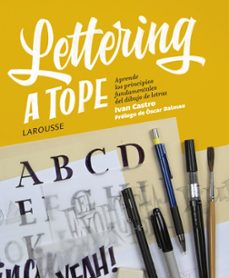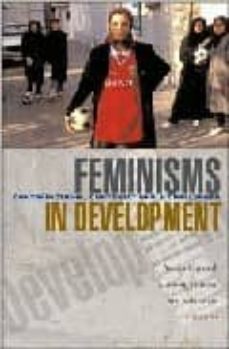Imprescindibles
Más vendidos Libros más leídos eBooks más leídos Todos los libros Todos los libros Autores destacados Series y sagas
Recomendados Libros recomendados Autores destacados Libros que inspiran Vidas con historia LGTBIQ+ English books
Ficción
Literatura Contemporánea Estudios literarios Clásicos Cuentos Poesía Teatro Libros de bolsillo Sagas literarias
Géneros literarios Novela romántica y erótica Novela negra Novela histórica Narrativa fantástica Novela de ciencia ficción Novela de terror Narrativa de humor Narrativa de viajes
No Ficción
Ciencias y tecnología Biología Ciencias Ciencias naturales Divulgación científica Informática Ingeniería Matemáticas Medicina Salud y dietas Formación Idiomas Estilo de vida Libros de Cocina Guías de viaje Narrativa de viajes Deportes Libros de Juegos Manualidades
Humanidades Autoayuda y espiritualidad Ciencias humanas Derecho Economía y Empresa Psicología y Pedagogía Filosofía Sociología Filología Biblioteconomía Estudios filológicos Estudios lingüísticos Estudios literarios Historia y crítica de la Literatura
Infantil
Juvenil
#Jóvenes lectores Narrativa juvenil Clásicos adaptados Libros Wattpad Libros Booktok Libros de influencers Libros de Youtubers Libros Spicy Juveniles Libros LGTBIQ+ Temas sociales Libros ciencia ficción Libros de acción y aventura Cómic y Manga Juvenil Cómic Juvenil Manga Shonen Manga Shojo Autores destacados Jennifer L. Armentrout Eloy Moreno Nerea Llanes Hannah Nicole Maehrer
Libros de fantasía Cozy Fantasy Dark academia Hadas y Fae Romantasy Royal Fantasy Urban Fantasy Vampiros y hombres lobo Otros Misterio y terror Cozy mistery Policiaca Spooky Terror Thriller y suspense Otros
Libros románticos y de amor Dark Romance Clean Romance Cowboy Romance Mafia y amor Romance dramatico Romcom Sport Romance Otros Clichés Enemies to Lovers Friends to Lovers Hermanastros Slow Burn Fake Dating Triángulo amoroso
Cómic y Manga
Novela gráfica Novela gráfica americana Novela gráfica europea Novela gráfica de otros países Personajes, series y sagas Series y sagas Star Wars Superhéroes Cómics DC Cómics Marvel Cómics otros superhéroes Cómics Valiant
eBooks
Literatura Contemporánea Narrativa fantástica Novela de ciencia ficción Novela de terror Novela histórica Novela negra Novela romántica y erótica Juvenil Más de 13 años Más de 15 años Infantil eBooks infantiles
Humanidades Autoayuda y espiritualidad Ciencias humanas Economía y Empresa Psicología y Pedagogía Filosofía Historia Historia de España Historia Universal Arte Cine Música Historia del arte
Ciencia y tecnología Ciencias naturales Divulgación científica Medicina Salud y dietas Filología Estudios lingüísticos Estudios literarios Historia y crítica de la Literatura Estilo de vida Cocina Guías de viaje Ocio y deportes
ELIZABETH HARRISON
Recibe novedades de ELIZABETH HARRISON directamente en tu email
Filtros
Del 1 al 4 de 4
GOOD PRESS 4064066171360
Christmas-Tide is a captivating anthology that immerses readers in the heart-warming and thought-provoking themes of Yuletide celebrations and traditions. Through an array of prose eliciting a range of emotions, the collection navigates the intricacies of family, goodwill, and the often-overlooked melancholic undertones that accompany the season. With each piece painting a vivid portrait of Victorian and early 20th-century Christmas, the anthology captures both the boisterous revelry and the quiet introspection of the festive period. Memorable excerpts invite readers to ponder the profound significance of generosity and human connection during this universal festivity. The anthology features standout contributions from literary stalwarts Charles Dickens and Elizabeth Harrison, whose works collectively form a dialogue that enriches the theme of the anthology. Dickenss keen exploration of societal dynamics is beautifully complemented by Harrisons evocative insights into the moral and educational aspects of Christmas. This collaboration across distinct literary traditions foregrounds the cultural and historical backdrop of the time, enhancing the anthologys exploration of the Christmas spirit and its transformative potential. Christmas-Tide presents an exemplary opportunity for readers to journey through varied literary landscapes within one volume. Ideal for both the casual reader and the literary enthusiast, this collection offers a rich tapestry of styles and narratives that collectively evoke the warmth and complexity of Christmas. By engaging with these timeless pieces, readers are invited to enter a dialogue with the past, gaining invaluable insights into the continuously evolving traditions of this cherished holiday season.
Ver más
eBook
ZED BOOKS 9781842778197
The political project of reasserting feminist engagement with development has proceeded uneasily in recent years. This book examines how the arguments of feminist researchers have often become depoliticised by development institutions and offers richly contextualised accounts of the pitfalls and compromises of the politics of engagement. Speaking from within academic institutions, social movements, development bureaucracies and national and international NGOs, the contributors highlight on-going battles for interpretation and the unequal power relations within which these battles take place. They engage with the challenges of achieving solidarity in the context of increasingly polarised geo-political relations, and advance a diversity of critiques of simplified ideas about gender, and how these ideas come to be interpreted in institutional policies and practices.
Ver más
Tapa blanda
Del 1 al 4 de 4






























